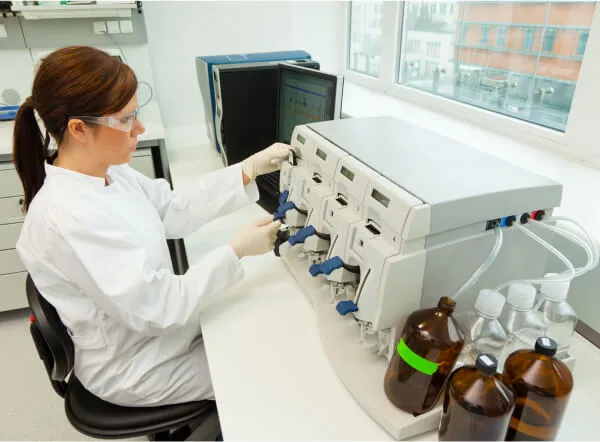Physiology, Pathology and Related Sciences

Physiology and pathology are two distinct fields of science that include the study of cells. Read on to learn how a formal study of physiology, pathology and related sciences can lead to a career as a medical pathologist, physician or physician assistant.
<h2 id="section---ArePhysiologyPathologyAndRelatedSciencesForMe">Are Physiology, Pathology and Related Sciences for Me?</h2>
<h3 id="section---CareerOverview">Career Overview</h3>
<p>Physiology studies the physical, mechanical and biochemical processes of living organisms. As a <a href="https://learn.org/articles/What_is_a_Physiologist.html">physiologist</a>, you could examine cellular systems, genes, tissues and organs. You might also perform research for drug companies or become an <a href="https://learn.org/articles/Whats_the_Job_Description_of_an_Exercise_Physiologist.html">exercise physiologist</a>, devising fitness plans to improve patients' health and body functions.
</p>
<p>Pathology studies the causes and progress of diseases, examining tissues, organs, body fluids and cells. Pathologists are specialized <a href="https://learn.org/articles/How_Can_I_Become_a_Physician.html">physicians</a> who work with living patients or in morgues, conducting autopsies and uncovering causes of death. As a pathologist, you may use lab tests and a microscope to see if diseases are present in a patient's sample. You might report your findings to other medical professionals or criminal justice officials. If you're interested in this field of study, you might also pursue a career as a <a href="https://learn.org/articles/Pathology_Assistant_Schools_and_Colleges_Your_Questions_Answered.html">pathologist assistant</a>, dissecting specimens, preparing samples for testing and performing other duties directed by a pathologist.
</p>
<h3 id="section---CareerOptionsAndSpecializations">Career Options and Specializations</h3>
<p>According to the American Board of Medical Specialties (ABMS), the 11 areas of specialization associated with clinical and anatomic <a href="https://learn.org/articles/What_are_Some_Career_Options_in_the_Field_of_Pathology.html">pathology</a> include <a href="https://learn.org/articles/Online_Masters_Degrees_in_Hematology_Program_FAQs.html">hematology</a> and <a href="https://learn.org/articles/What_Does_a_Forensic_Pathologist_Do.html">forensic pathology</a> (<i>www.abms.org</i>). Additional career opportunities may be found in <a href="https://learn.org/articles/What_is_Biotechnology.html">biotechnology</a>, health care, research and education, as well as in some industries.
</p>
<h3 id="section---EmploymentAndSalaryInformation">Employment and Salary Information</h3>
<p>In May 2013, the U.S. Bureau of Labor Statistics (BLS) reported that <a href="https://learn.org/articles/Biological_Scientist_Your_Career_and_Salary_Questions_Answered.html">biological scientists</a>, such as biochemists and biophysicists, earned a median annual salary of $84,320. Opportunities for employment were expected to grow by 19% nationwide between 2012 and 2022. By comparison, employment of physicians and <a href="https://learn.org/articles/What_Qualifications_Do_I_Need_to_Be_a_Surgeon.html">surgeons</a> was projected to increase by 18%, with a 38% growth in jobs expected for physician assistants during the same 10-year period. While physician assistants earned a median annual salary of $92,970 in May 2013, salaries for physicians and surgeons varied according to specialty.
</p>
<p>Nationwide, the BLS projected a 9% increase in job openings for exercise physiologists through 2022. As of May 2013, they earned a median annual wage of $46,020. Based upon information provided by <i>PayScale.com,</i> the median annual salary for a <a href="https://learn.org/articles/Medical_Pathologist_Career_Profile_Employment_Outlook_and_Educational_Requirements.html">medical pathologist</a> in July 2014 was $174,073, while pathology assistants earned $60,399 a year.
</p>
<h2 id="section---HowCanIWorkInPhysiologyPathologyAndRelatedSciences">How Can I Work in Physiology, Pathology and Related Sciences?</h2>
<h3 id="section---EducationalRequirements">Educational Requirements</h3>
<p>As an undergraduate, you may pursue a major in animal or <a href="https://learn.org/articles/Human_Physiology_Careers_Your_Questions_Answered.html">human physiology</a>, neuroscience or integrative physiology. A bachelor's degree in physiology may qualify you for an entry-level clinical job, or a position as a research technician, <a href="https://learn.org/articles/How_Can_I_Become_a_Medical_Writer.html">medical writer</a> or science teacher at a middle or high school. Completion of a bachelor's or graduate degree program in exercise physiology could lead to a job in health fitness or therapy. Undergraduate and graduate programs in physiology can also prepare you for admission to medical, <a href="https://learn.org/articles/What_are_the_Educational_Requirements_to_Become_a_Dentist.html">dental</a> or <a href="https://learn.org/articles/How_Do_I_Become_a_Veterinarian.html">veterinary</a> school.
</p>
<p>A master's degree in physiology may open the door to more advanced research, clinical and teaching opportunities, as well as public health positions. As a graduate with a <a href="https://learn.org/articles/PhD_in_Physiology_Your_Questions_Answered.html">Doctor of Physiology (Ph.D.) in Physiology</a>, you might operate your own research laboratory and seek funding grants. You could also supervise a research team at a company, government agency, hospital or university, or teach at the college level. Doctoral programs in pathology may also prepare you for work in academia, biotechnology or research.
</p>
<h3 id="section---InformationForMedicalDoctors">Information for Medical Doctors</h3>
<p>You'll need to complete a <a href="https://learn.org/articles/What_Are_the_Different_Types_of_Medical_Degrees.html">Medical Doctor or Doctor of Osteopathic Medicine</a> program to qualify for a position as a pathologist. Additional requirements include a specialized residency, usually 3-4 years in length, and a certification from the American Board of Pathology. Certification in a pathology subspecialty may require 1-2 years of additional training. As a medical doctor, you'll also need to meet your state's licensing requirements.</p>


.svg)